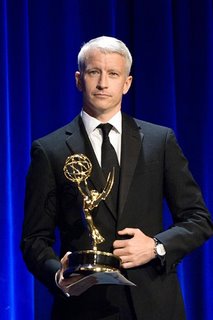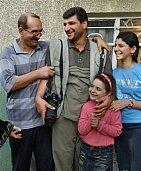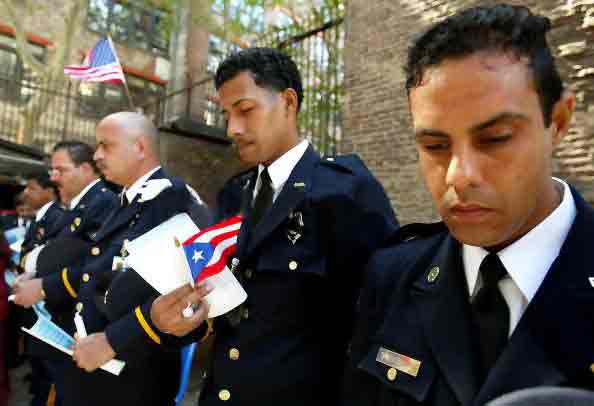
Many seek and comment at the Anderson Cooper's blog at the CNN page expecting to have at least a cyber connection with the gray haired anchor. In reality, if he read all the comments he wouldn't have a career nor a life. Instead of Anderson, all comments are filtered by an army of 15 content editors employed at CNN solely to monitor comments on his blog.

Mark Chernesky, Web Development Director for Digital Media Technologies, Turner Broadcasting System, gives us an inside look of how the cyber version of CNN works.
"It is not magic. Type in the URL -- cnn.com -- and all the day's news suddenly appears on the screen before you. Just like our on-air sister, frequent updates and breaking news bulletins provide readers with up-to-the minute coverage of world events.
But in this speed of light medium, getting a story onto the Web is a bit more complicated than the simple push of a button. The article passes through no fewer than 10 people. Follow the chart below as the story evolves from a news event to a full-blown in-depth interactive report, where the reader, order the news by priority and decide which elements of a story are most important"

So how it works?
1. After searching through the CNN network-wide news gathering system called Basys, the producer consults with the senior producer to construct a rundown that contains the day's events in order of importance and the coverage planned by the network. Early in his or her shift, the producer holds an editorial meeting to discuss the rundown with the rest of the staff and offer content and presentation suggestions. Three different shifts go through this same process over the course of 24 hours.
Each story is listed on the white board, with the initials of the writer-associate producer team assigned to the story.
2. A writer and an associate producer pick up the story and begin to gather the necessary elements. This is a closely-knit team. The writer sifts through wires, CNN reports and raw video feeds to produce a coherent document that incorporates pictures, sounds, movies and links. The associate producer tracks down the multimedia elements, creates the pictures and sounds, consults the multimedia designer for special graphic requests and discusses QuickTime movie possibilities with the associate producer/video editor. Throughout the process, the writer and associate producer communicate with each other to decide which elements will make the story complete and cohesive.
3. Meanwhile, the web editor scours the Internet for appropriate links and the editorial assistant conducts Lexis-Nexis searches for further background information.
4. Once the story is written, the copy editor takes over to check spelling and style and review factual accuracy.
5. When the story has been copy edited and the elements have been gathered, the associate producer lays out the page on paper, showing where pictures and other multimedia elements should be positioned. This goes to the web editor, who codes the story with HTML so it can be read on the Web.
6. Next, the producer steps back into the picture along with the senior producer. Both check the story for accuracy on an inside server.
7. The nod is given and the Web master double-checks the story for multiple browser support and finally moves it to the outside.
8. If a posted story receives feedback from readers, the online coordinator gathers the feedback and has it posted on the site.
Overseeing the editorial process:
The executive producer handles all of the daily operations of the Web site and offers advice in tough situations.
Crowning the editorial process is the editor in chief, who's responsible for overall editorial vision and direction of the entire department.
So there you go! and as the receipt email from Anderson 360 goes "Anyway, the best we can do is to acknowledge that we have indeed received and will read your message, and this little note is to let you know that. It’s automatic, yes; fails to take into account whether you’ve patted us on the back or slapped us across the face; does not differentiate between praise, correction, fury, proposals of marriage, or invitations to get lost. But rest assured we’ll know that part when we read it! "
You are on notice.


















